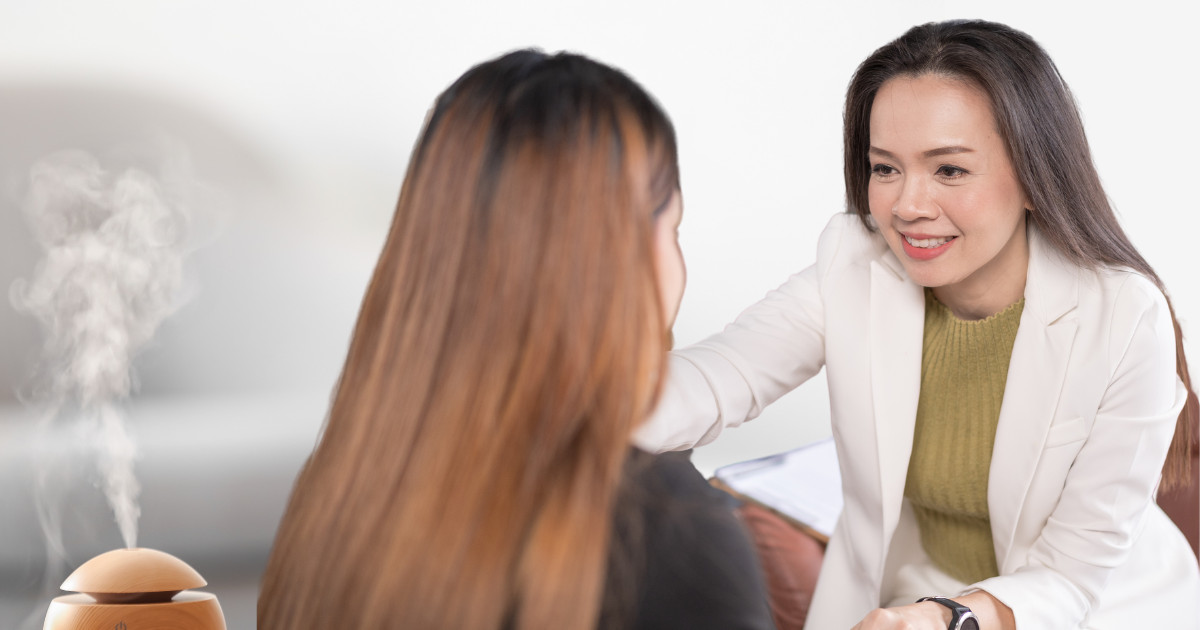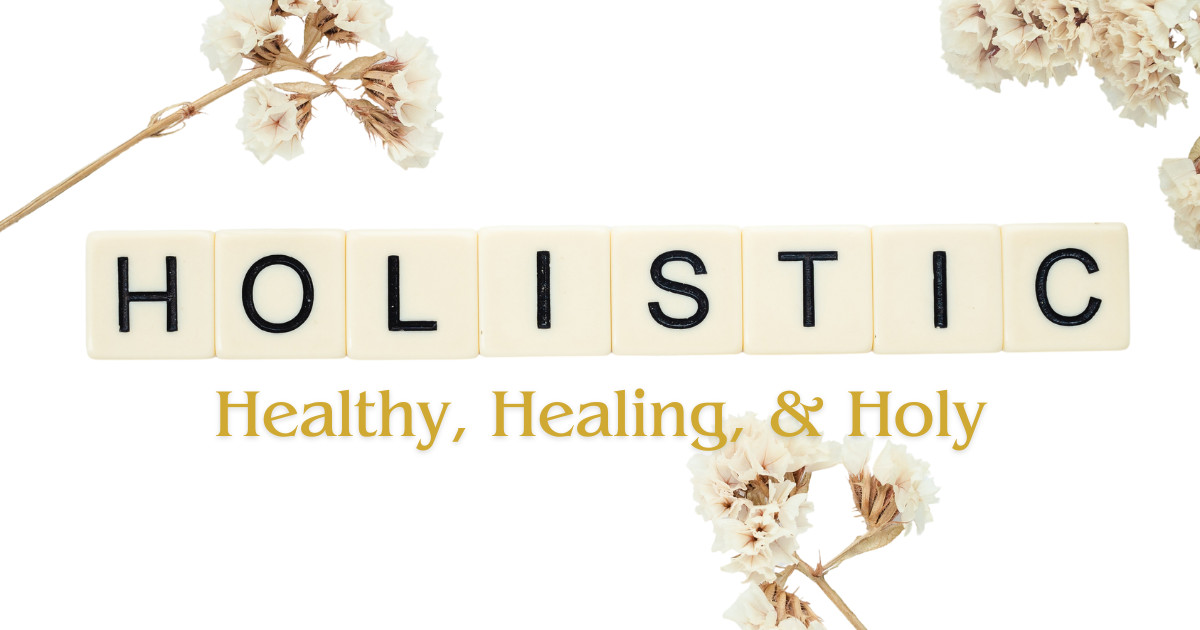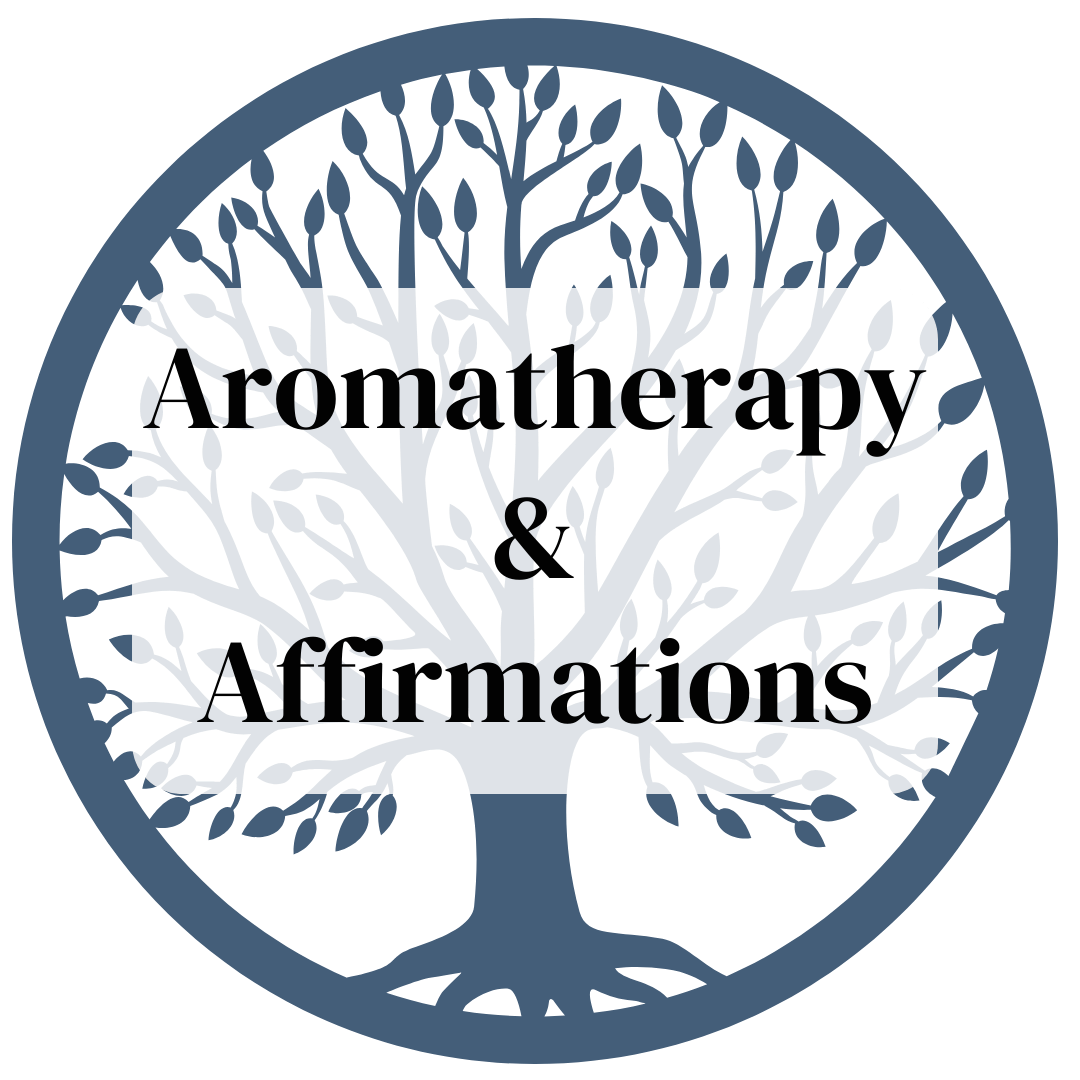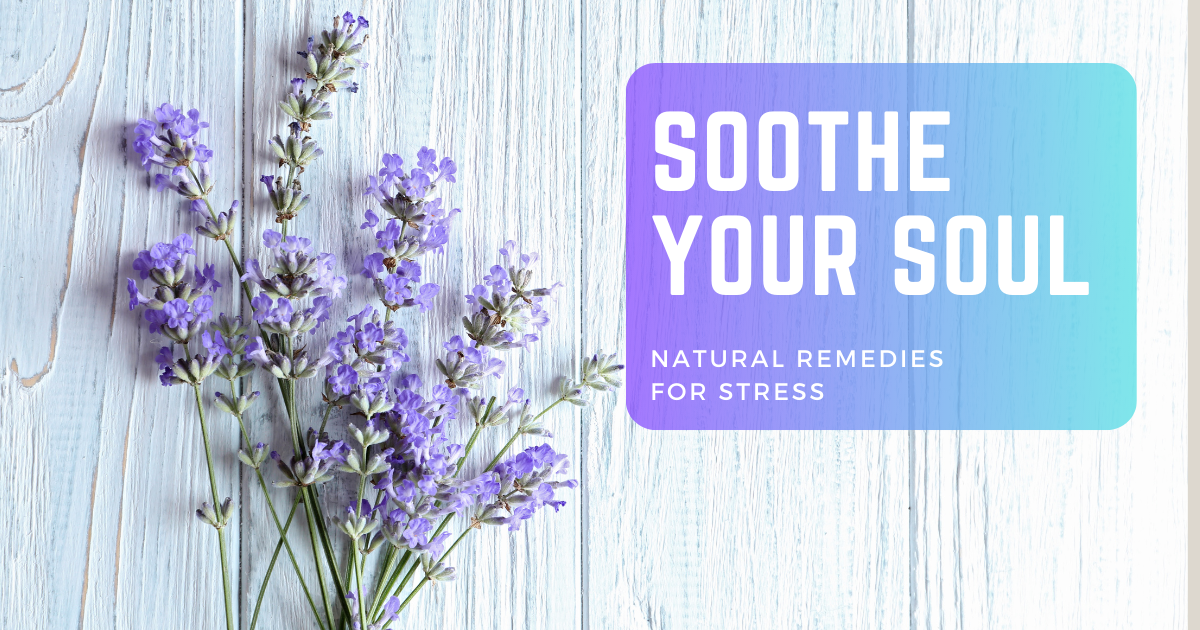
Welcome, friend! It warms my heart to have you here on my blog. It's truly remarkable how God's hand works in our lives, and I believe that it's a testament to the power of faith and divine involvement that you landed here. Can I get an amen?
Do you ever feel overwhelmed or burdened by stress? Don't worry! I'm here to tell you that there's an array of natural remedies out there that can help you hit pause on your worries and soothe your mind, body & soul as you pamper yourself with a little self care. Here are a few suggestions.
Get movin' with some exercise and do some mindful meditation to ease your anxieties. And don't forget the power of slow, deep breaths - they can work wonders! Eating a healthy, balanced diet and getting plenty of sleep can also do amazing things for your well-being. So take a deep breath, relax, and know that you got this! Let's take it one step at a time...
1. Get movin' with some exercise:
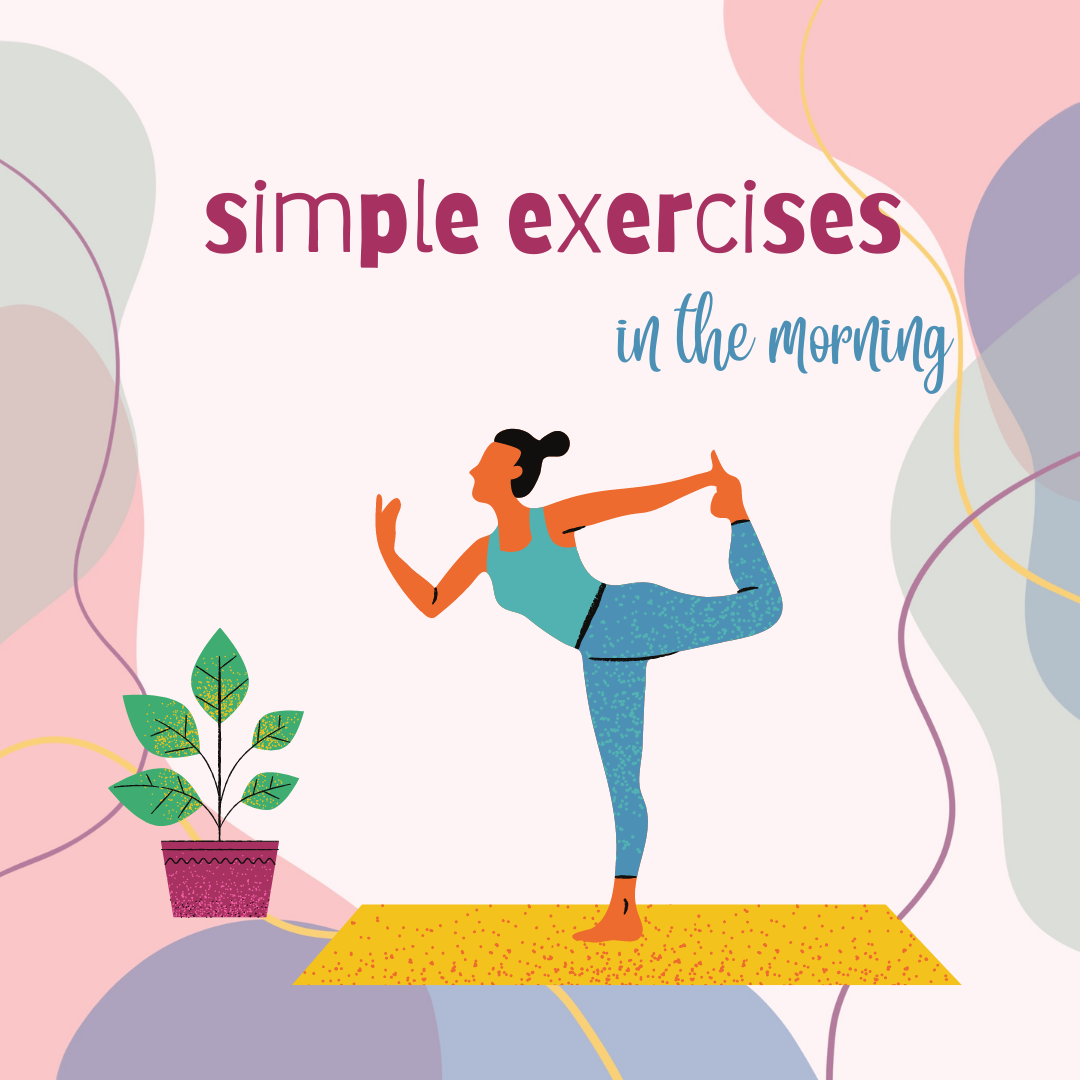
It's important to maintain physical activity to promote overall health and mobility no matter your age. Here is a simple and easy 5-minute exercise routine that can be done in the comfort of your own home:
1. Seated March – Sit in a chair with your feet flat on the ground. Lift one knee towards your chest and then put it down. Alternate legs for 30 seconds.2. Wall Push-ups – Stand facing a wall with your palms on the wall at shoulder height. Lean towards the wall with your elbows bent and then push yourself back to starting position. Do this for 30 seconds.3. Toe Stand – Hold onto a chair or a table for support. Rise up onto your tiptoes and then lower yourself back down. Repeat for 30 seconds.4. Arm Circles – Stand with your feet shoulder-width apart. Raise your arms out to the side and rotate them in a circular motion for 30 seconds.5. Sit and Stand – Sit in a chair and stand up. Sit back down and repeat for 30 seconds.
Remember to stretch before and after your exercise routine and to consult with your medical provider before starting a new exercise program. With regular practice, this simple routine can help to improve strength, balance, and maintain overall health.
2. Do some mindful meditation and deep breathing:
Meditation can help reduce stress by calming the mind and allowing you to focus on the present moment. It can also help increase awareness of your thoughts and emotions, which can be an important first step in managing anxiety.
By incorporating meditation into your daily routine, you may find that you are better equipped to face life's challenges with a greater sense of calm and resilience.
Deep breathing is also an incredibly powerful tool for managing stress and anxiety. When you're stressed or anxious, your body goos into fight-or-flight mode, triggering the sympathetic nervous system and causing your heart rate, blood pressure, and breathing rate to increase.
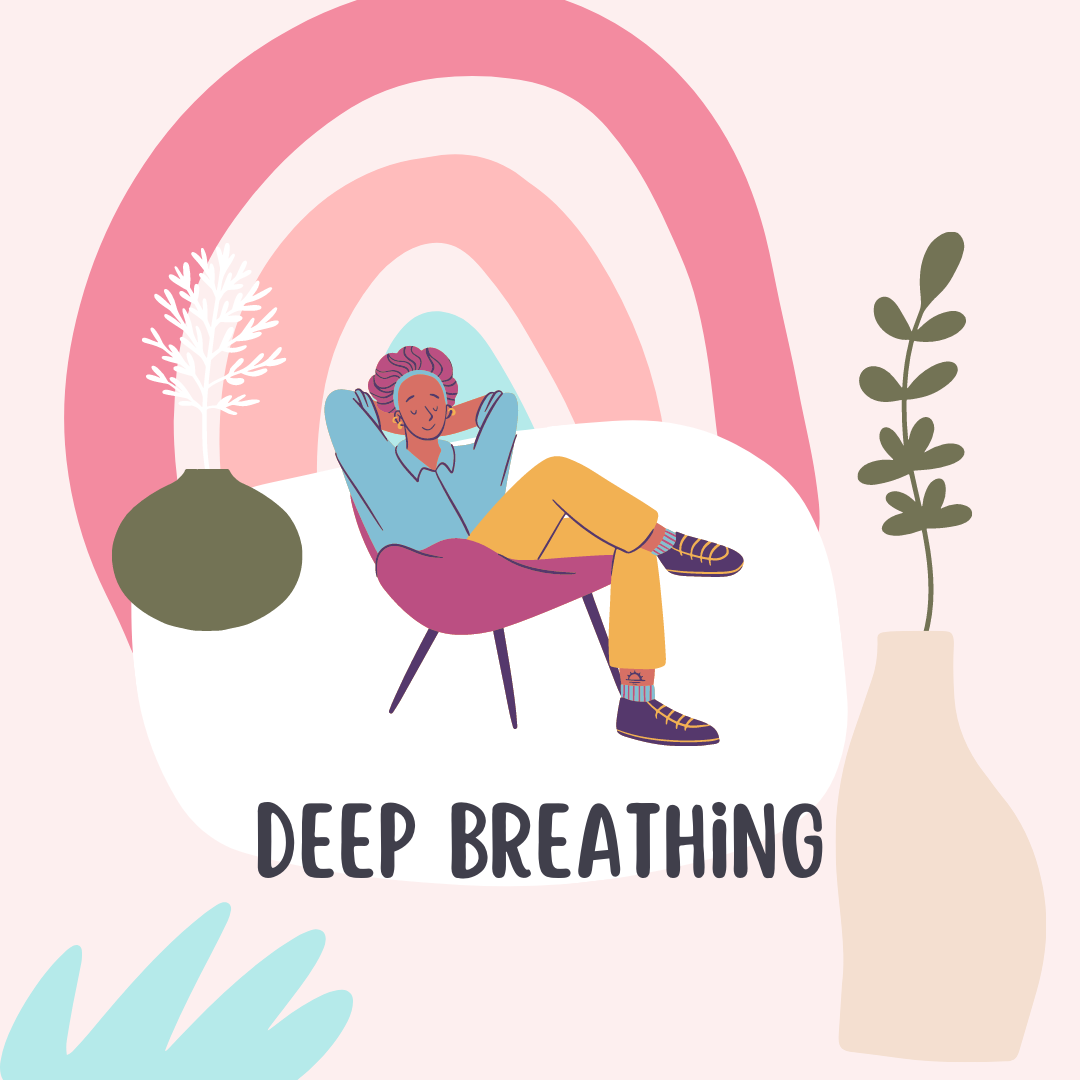 By taking deep breaths and slowing down your breathing rate, you activate the parasympathetic nervous system, which helps to calm you down and reduce your stress response. When you breathe deeply, you also increase the flow of oxygen to your brain, which has a calming effect on your thoughts and helps you to feel more grounded and centered.
By taking deep breaths and slowing down your breathing rate, you activate the parasympathetic nervous system, which helps to calm you down and reduce your stress response. When you breathe deeply, you also increase the flow of oxygen to your brain, which has a calming effect on your thoughts and helps you to feel more grounded and centered. In addition, deep breathing can help to reduce muscle tension in the body, which is often a physical manifestation of stress and anxiety. There are many different techniques for deep breathing:
- A simple one is to inhale deeply through your nose for a count of 4, hold the breath for a count of 7, and then exhale slowly through your mouth for a count of 8. Repeat this pattern for several rounds, focusing on the sensation of your breath moving in and out of your body.
- Using essential oils such as Young Living's Stress Away or Lavender can also support relaxation during deep breathing exercises. By incorporating deep breathing and essential oils into your self-care routine, you can help to manage stress and anxiety and improve your overall well-being.
3. Maintain a healthy diet:
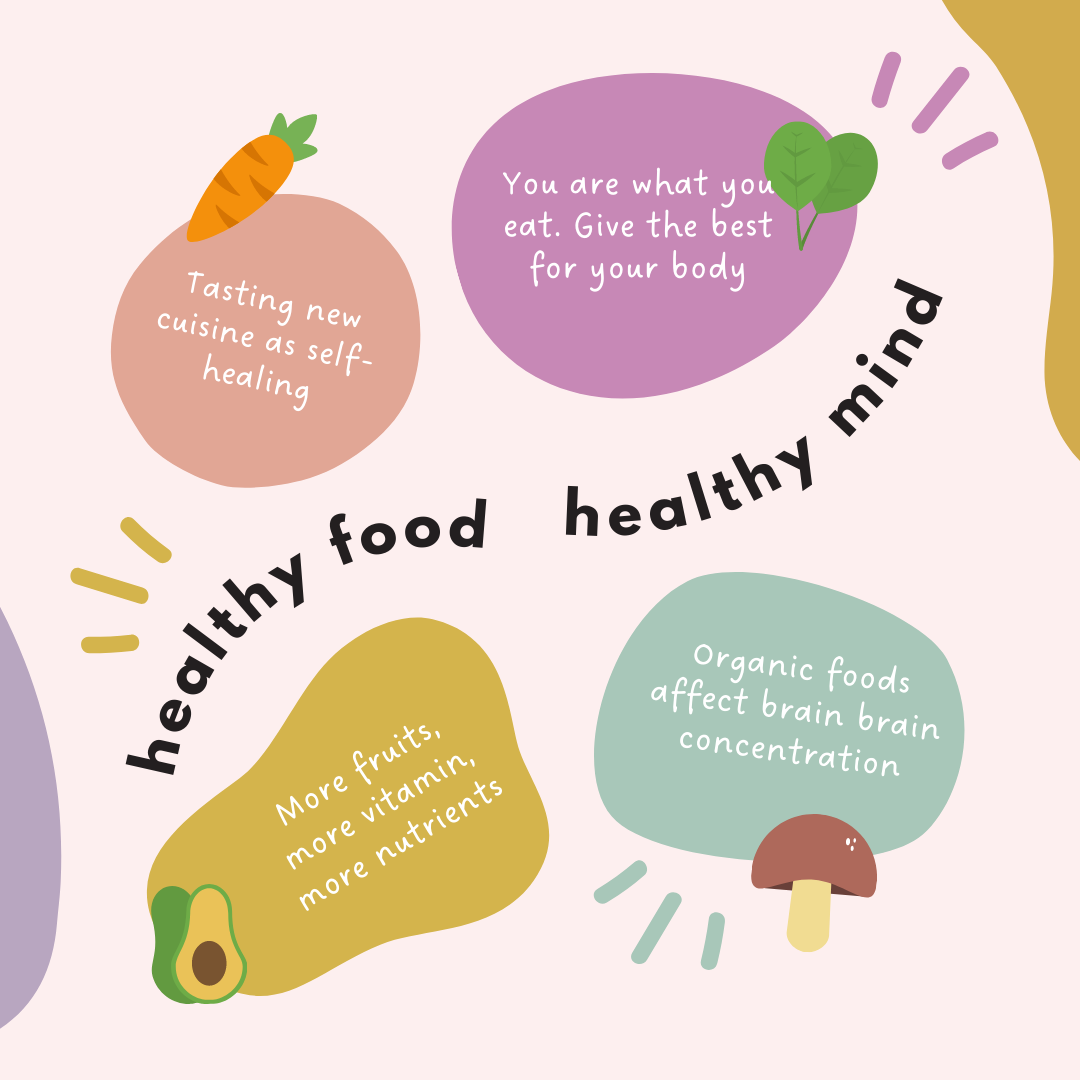 Maintaining a healthy diet can have a significant impact on your mental health and reduce stress and anxiety. Studies have found that consuming foods high in sugar and saturated fats can increase the likelihood of developing depression and anxiety. On the other hand, a well-balanced diet that includes whole grains, lean proteins, and plenty of fruits and vegetables can help to promote the production of neurotransmitters like serotonin and dopamine, which can improve your mood and reduce stress levels.
Maintaining a healthy diet can have a significant impact on your mental health and reduce stress and anxiety. Studies have found that consuming foods high in sugar and saturated fats can increase the likelihood of developing depression and anxiety. On the other hand, a well-balanced diet that includes whole grains, lean proteins, and plenty of fruits and vegetables can help to promote the production of neurotransmitters like serotonin and dopamine, which can improve your mood and reduce stress levels.
- Eating a diet rich in antioxidants, like those found in leafy greens, nuts, and berries, can help to reduce inflammation in the body and protect against oxidative stress, which has been linked to depression and anxiety.
- Additionally, consuming foods high in omega-3 fatty acids, such as fish, flax seeds, and walnuts, can help to lower inflammation and promote healthy brain function.
- Incorporating healthy eating habits into your lifestyle can have a significant impact on your overall well-being, including reducing stress and anxiety. By choosing whole, nutrient-dense foods, you can nourish both your body and mind and support optimal mental health.
4. Get a good night's sleep:
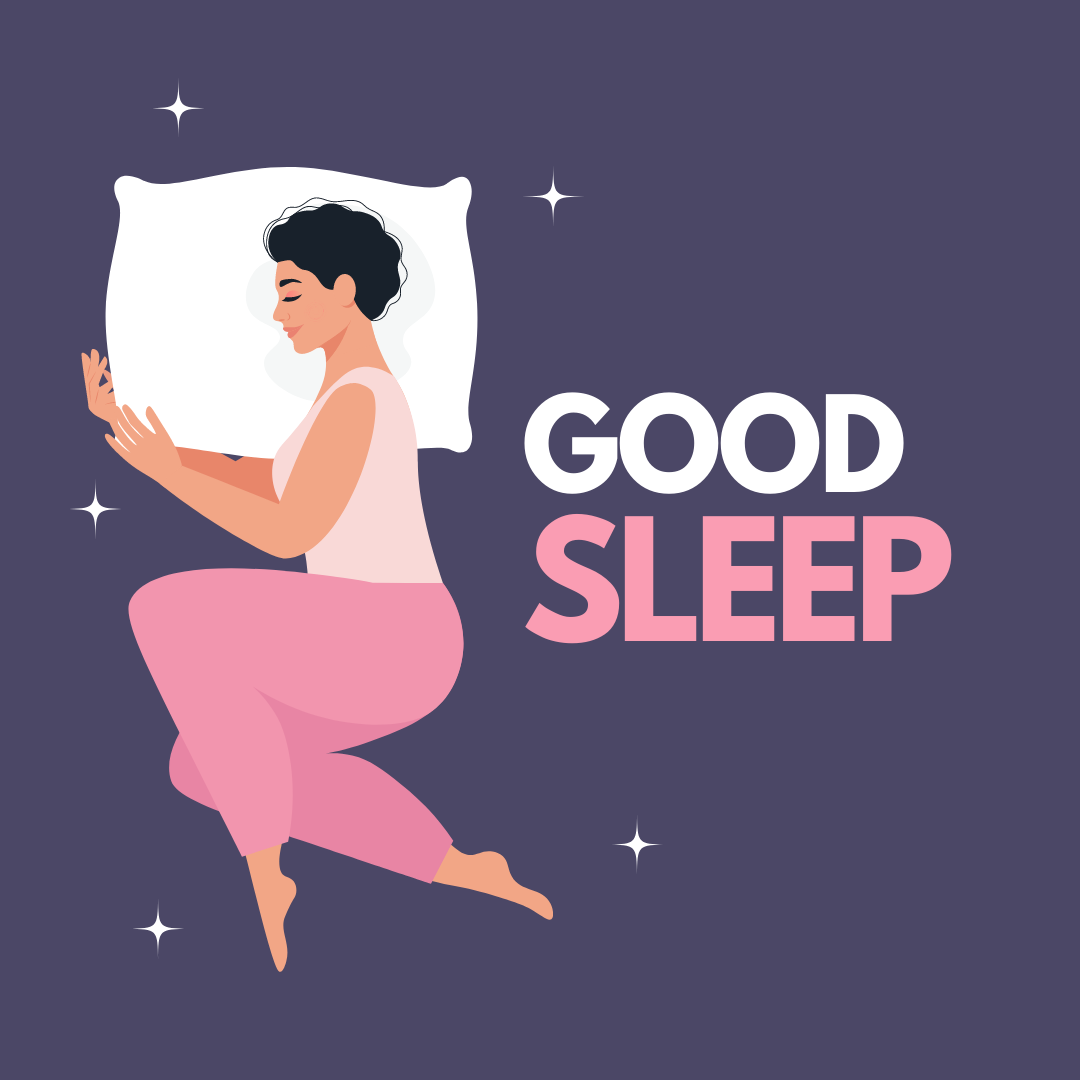 Getting a good night's sleep is crucial for your physical and mental well-being. It helps you to reduce stress and anxiety in many ways. When you sleep, the body and mind are at rest, which allows your muscles to relax, and your mind to unwind. Without proper sleep, your body will not be able to recover from the day's stress, leading to increased anxiety and other mental health issues.
Getting a good night's sleep is crucial for your physical and mental well-being. It helps you to reduce stress and anxiety in many ways. When you sleep, the body and mind are at rest, which allows your muscles to relax, and your mind to unwind. Without proper sleep, your body will not be able to recover from the day's stress, leading to increased anxiety and other mental health issues.In addition, studies have shown that regular and sufficient sleep can also help with memory, concentration, and productivity throughout the day.
- Studies have shown that lack of proper sleep can increase the level of the stress hormone cortisol in the body, leading to anxiety and mood swings. On the other hand, good sleep can help to reduce the level of cortisol and promote the production of mood-boosting hormones like serotonin and dopamine. This can help to reduce stress and anxiety levels, improving overall mental and physical health.
- In addition to this, good sleep helps to rejuvenate your body and mind. It boosts your energy levels and enhances your ability to cope with daily stressors. It helps to improve memory, concentration, and overall brain function, which can help you perform better during the day and fight against stress and anxiety.
- Getting a good night's sleep is vital for reducing stress and anxiety. By investing in quality sleep, you can enhance your overall well-being, improve your mood, and enhance your ability to cope with daily stressors.
5. And use essential oils:
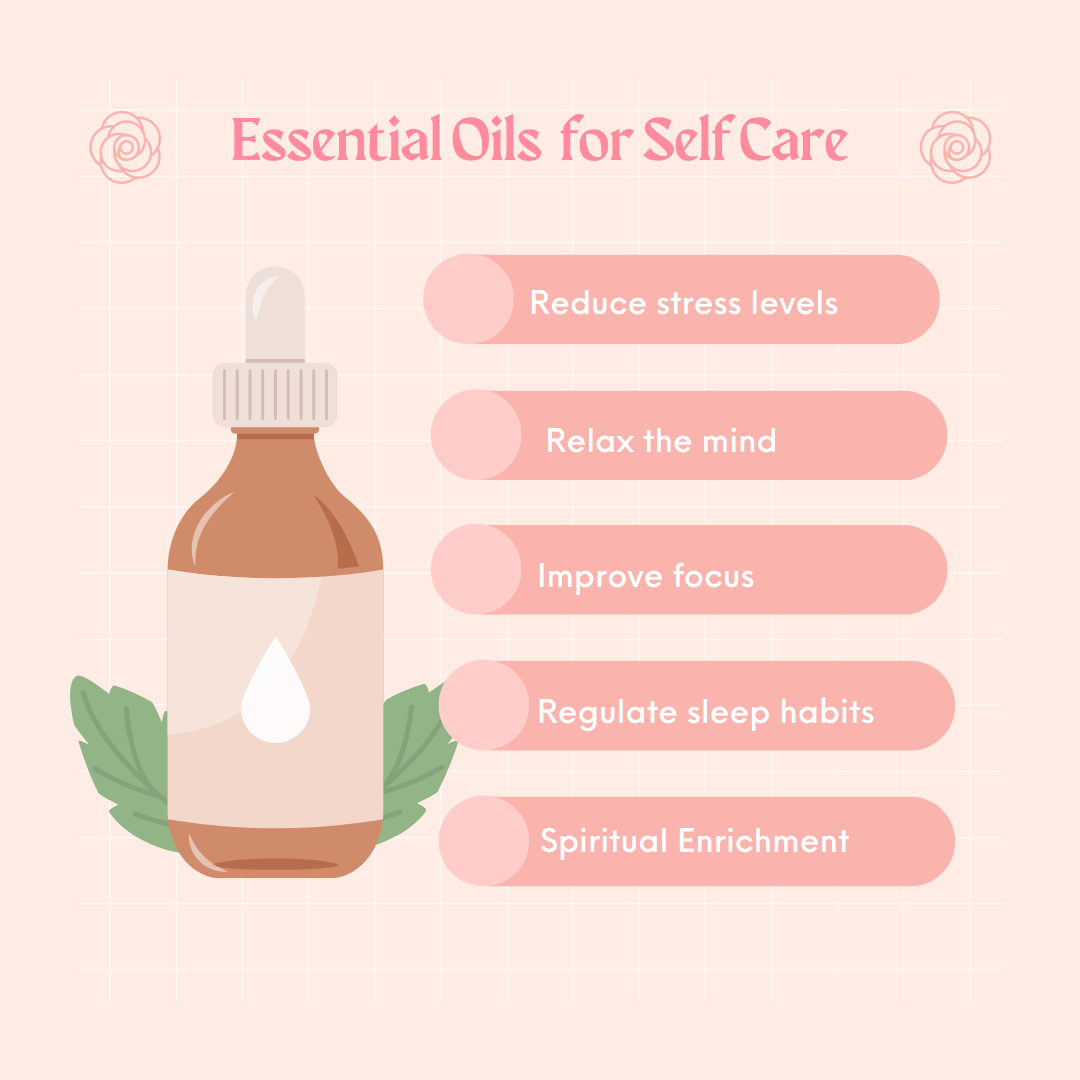 Whether you're dealing with stress and anxiety as a result of the unique challenges of the ministry, or if you're simply looking for a natural way to promote relaxation and well-being, essential oils can be a great addition to your self-care routine.
Whether you're dealing with stress and anxiety as a result of the unique challenges of the ministry, or if you're simply looking for a natural way to promote relaxation and well-being, essential oils can be a great addition to your self-care routine. For those in any kind of serving ministry, managing stress and anxiety is vital for maintaining a healthy and productive spiritual life. Essential oils are a natural and effective way to stay healthy on all levels, physically, emotionally and spiritually.
In addition to the oils mentioned in my podcast, there are other favorites that can be especially helpful for those of us in the ministry. These include:
- Cedarwood: This woodsy oil is known for its calming and grounding properties. It can help to reduce tension and promote relaxation, making it a great oil to use before turning in for the day.
- Roman Chamomile: This soothing oil is great for calming the mind and promoting restful sleep. It can also help to reduce anxiety and tension through out the day.
- Copaiba: This resin oil is great for reducing inflammation and promoting relaxation. It can also help to soothe anxious feelings and promote emotional balance.
For everyday stress and anxiety, incorporating essential oils into your daily routine can be a great way to manage these feelings in a natural and effective way.
Don't Suffer in Silence
Take action today and start living your best life. Get movin' with some exercise; do some mindful meditation; take a few deep breaths; maintain a healthy diet; get a good night's sleep, and give the oils a try.
By incorporating these small but beneficial habits into your daily routine, you can make a big impact on your overall well-being. Don't wait any longer, start taking action today and discover the endless possibilities of a healthier, happier life and ministry!
Come and join me on my podcast, by clicking the button below, and together we will uncover more essential oil possibilities that I think you will like!








